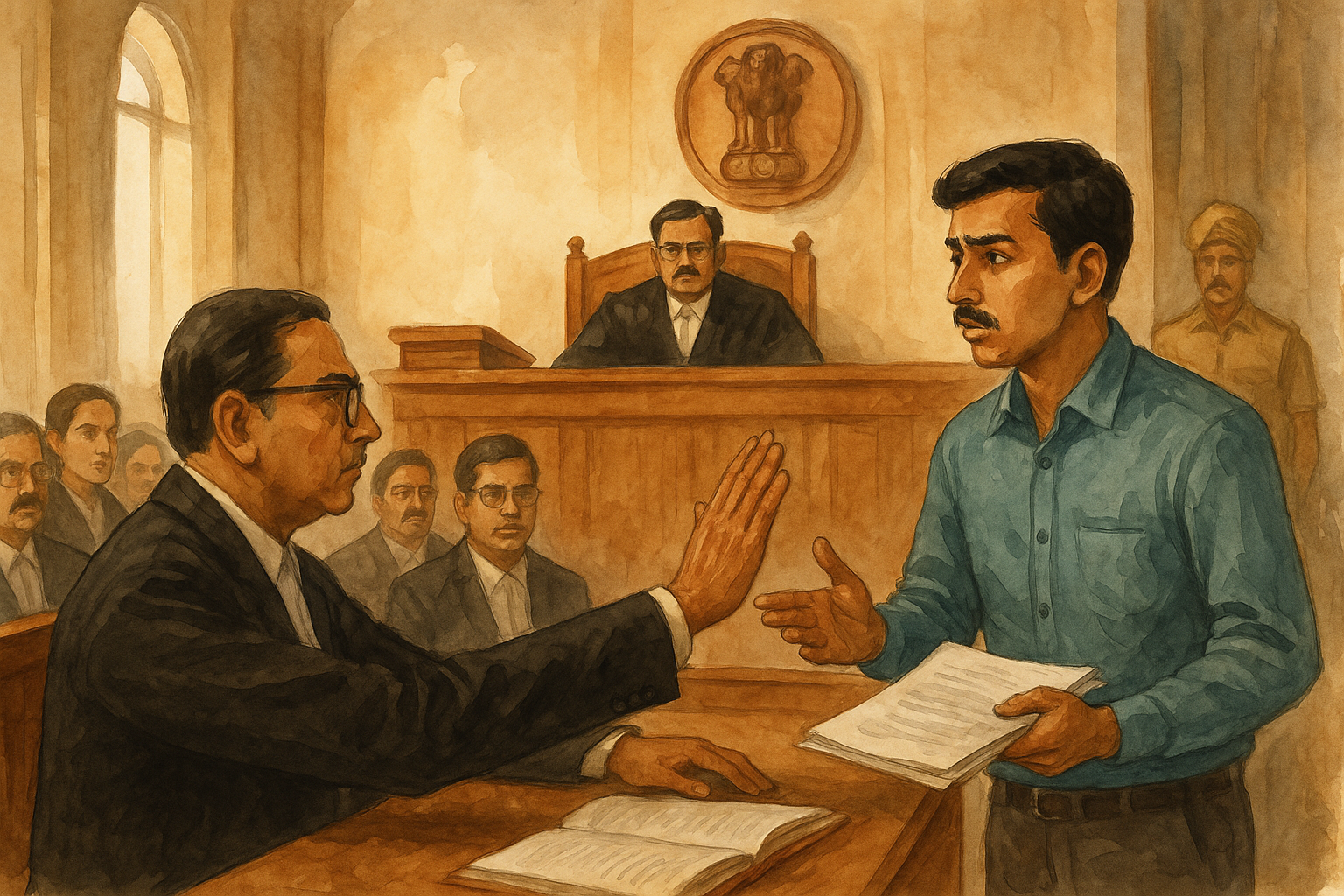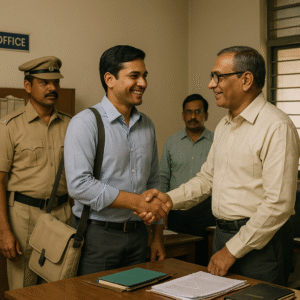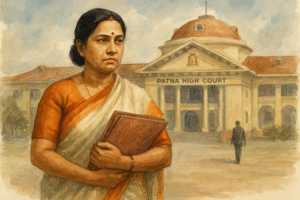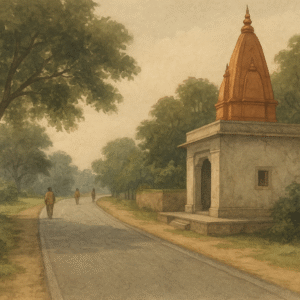The Patna High Court delivered a judgment on 04 May 2021 in a writ petition challenging the rejection of a candidate’s candidature in the 30th Bihar Judicial Services Competitive Examination (Advertisement No. 6/2018). The case turns on a narrow but crucial compliance point: whether a candidate who failed to produce the specific “original character certificate issued by the College/University last attended” at the time of interview could later cure that defect. The Court answered in the negative and dismissed the writ.
Simplified Explanation of the Judgment
This writ petition was filed by a candidate who had cleared the preliminary and mains stages of the 30th Bihar Judicial Services Examination and was called for interview. At the interview, the Commission (BPSC) required production and verification of originals of all certificates, including the character certificate from the institution last attended. The candidate produced certain documents (including a Sub-Divisional Magistrate’s character certificate and a bonafide/character document) but not the original institutional character certificate listed in his application. He explained that the original institutional certificate had been deposited earlier with the Delhi Bar Council at the time of his enrollment as an advocate. Post-interview, he obtained it back and sent it to the Commission by email and speed post. Despite this, his candidature was rejected in the final result for non-production/verification of the required original on the interview date. He approached the High Court seeking directions to publish his marks, include him in the final/ addendum merit list, consider his representations enclosing the original certificate, and costs.
The High Court examined the governing Recruitment Rules of 1955 for the Bihar Civil Service (Judicial Branch) and the terms of Advertisement No. 6/2018. Two clauses mattered most:
• Clause 9 required that only those certificates mentioned in the online application and issued prior to the last date of application would be accepted.
• Clause 10 mandated production of the originals of all marksheets and certificates at the time of interview; failing which the Commission would be free to take an appropriate decision regarding the candidate’s eligibility.
Additionally, Clause 11 obliged candidates to ensure that originals of all certificates were in their possession when they filled the application. The interview programme reiterated that “no further time would be given” if originals were not produced on the interview date.
Applying these terms, the Court found no ambiguity: the requirement was plain, mandatory, and known well in advance. The candidate’s own application listed a particular character certificate (with certificate number and date) from the University/College he last attended; that exact original had to be produced on the interview date. Admittedly, it was not. Post-interview submissions by email or speed post could not cure the defect because the advertisement explicitly barred any such relaxation unless the power of relaxation was stated in the Rules or advertisement—and no such power existed here.
The petitioner argued discrimination, pointing to alleged accommodations for some other candidates (such as change of interview date or acceptance of certain University documents). The Court rejected this. First, to invoke Article 14 (equality), a litigant must establish a subsisting legal right; here, the candidate failed to meet a mandatory condition, so there was no enforceable right to appointment or further consideration. Second, equality does not mean perpetuation of irregularities (“negative equality”): even if someone else benefited from an irregular concession, that does not entitle another candidate to the same.
On the petitioner’s reliance on a Supreme Court decision (Parvaiz Ahmad Parry) concerning ambiguity in advertisements, the High Court distinguished it: this advertisement was clear and unambiguous. The candidate’s failure was not due to confusion over which document to bring, but due to non-production of the exact original he had listed in his application.
Result: the Court upheld the BPSC’s decision to cancel the candidature. The writ petition was dismissed with no order as to costs.
Significance or Implication of the Judgment
This ruling reaffirms a strict, rule-bound approach to public recruitment, especially for judicial posts:
• Mandatory means mandatory: When an advertisement stipulates that specific originals must be produced on the interview date, later submission is not enough unless the Rules/advertisement expressly allow relaxation.
• Advance diligence by candidates: Candidates must ensure they personally have the originals before applying and certainly by the interview date; depositing originals with other authorities is not a valid excuse.
• No “negative equality”: One candidate cannot claim relief merely because another allegedly received leniency.
• Administrative certainty for competitive exams: This judgment supports uniform application of interview-day verification standards to avoid post-hoc controversies and preserve the integrity of selection.
Legal Issue(s) Decided and the Court’s Decision with reasoning
• Whether failure to produce, at the interview, the specific original character certificate from the last attended College/University (as listed in the application) can be cured by submitting it after the interview.
— Decision: No. Clauses 9–11 of Advertisement No. 6/2018 and the interview programme mandated production of originals on the interview date. Absence of any relaxation power in the Rules/advertisement meant post-interview submission could not cure the defect.
• Whether alleged accommodation to other candidates creates a right to similar relaxation under Article 14.
— Decision: No. Equality cannot be claimed to perpetuate irregularity (“negative equality”). A candidate must first establish a legal right; non-compliance with a mandatory condition defeats such a claim.
• Whether the advertisement was ambiguous about the required character certificate.
— Decision: No. The advertisement and interview programme were clear. The petitioner’s reliance on an ambiguity precedent was misplaced.
Judgments Referred by Parties (with citations)
• Parvaiz Ahmad Parry v. State of Jammu & Kashmir, 2016 (1) PLJR 132 (SC). (Relied upon by the petitioner to argue ambiguity principle; distinguished by the Court.)
• General Manager, South Central Railway, Secunderabad v. A.V.R. Siddhanti, AIR 1974 SC 1755. (Cited by petitioner; found inapplicable on facts.)
Judgments Relied Upon or Cited by Court (with citations)
• Bedanga Talukdar v. Saifudaullah Khan, (2011) 12 SCC 85 — selection must strictly follow stipulated procedure; no relaxation unless expressly provided and publicised.
• Director of Settlements, A.P. v. M.R. Appa Rao, (2002) 4 SCC 638 — mandamus requires a subsisting legal right.
• Basawaraj v. Special Land Acquisition Officer, (2013) 14 SCC 81 — Article 14 does not envisage “negative equality”; illegality cannot be perpetuated.
(Other authorities noted in arguments included: Municipal Corporation of Greater Bombay v. Dr. Sushil V. Patkar, 1991 Supp (2) SCC 432; State of Odisha v. Anup Kumar Senapati, (2019) 19 SCC 626; State of U.P. v. Raj Kumar Sharma, (2006) 3 SCC 330; P. Singaravelan v. District Collector, Tiruppur, (2020) 3 SCC 133.)
Case Title
Petitioner v. Bihar Public Service Commission & Ors. (Patna High Court)
Case Number
Civil Writ Jurisdiction Case No. 24282 of 2019.
Citation(s)
2021(2) PLJR 867
Coram and Names of Judges
Hon’ble Mr. Justice Shivaji Pandey and Hon’ble Mr. Justice Partha Sarthy.
Names of Advocates and who they appeared for
• For the petitioner: Mr. Rohit Kumar, Advocate.
• For the BPSC: Mr. Lalit Kishore, Senior Advocate; Mr. Sanjay Pandey, Advocate.
• For the Patna High Court (Registrar General): Mr. Piyush Lal, Advocate.
• For private respondents: Mr. Y.V. Giri, Senior Advocate; Mr. Pranav Kumar, Advocate.
Link to Judgment
MTUjMjQyODIjMjAxOSMxI04=-X3XosovCSB8=
If you found this explanation helpful and wish to stay informed about how legal developments may affect your rights in Bihar, you may consider following Samvida Law Associates for more updates.








